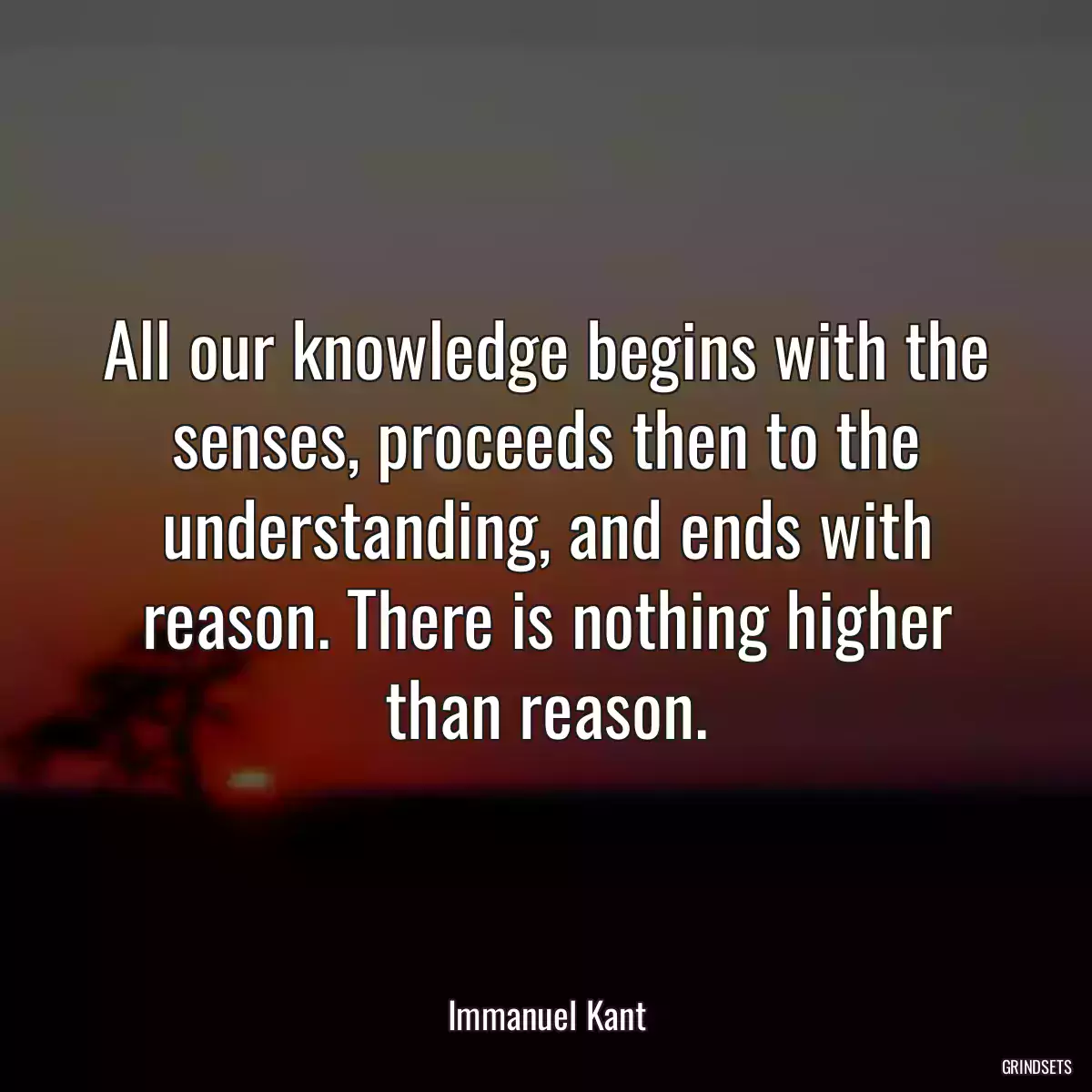
All our knowledge begins with ...

More phrases
I've missed more than 9000 shots in my career. I've lost almost 300 games. 26 times, I've been trusted to take the game winning shot and missed. I've failed over and over and over again in my life. And that is why I succeed.
I am fond of pigs. Dogs look up to us. Cats look down on us. Pigs treat us as equals.
Government of the people, by the people, for the people, shall not perish from the Earth.
The ballot is stronger than the bullet.
In times of change, learners inherit the earth, while the learned find themselves beautifully equipped to deal with a world that no longer exists.
Quotes from the same author
Science is organized knowledge. Wisdom is organized life.
Immanuel Kant
I shall never forget my mother, for it was she who planted and nurtured the first seeds of good within me. She opened my heart to the lasting impressions of nature; she awakened my understanding and extended my horizon and her percepts exerted an everlasting influence upon the course of my life.
Immanuel Kant
Freedom is independence of the compulsory will of another, and in so far as it tends to exist with the freedom of all according to a universal law, it is the one sole original inborn right belonging to every man in virtue of his humanity.
Immanuel Kant
God put a secret art into the forces of Nature so as to enable it to fashion itself out of chaos into a perfect world system.
Immanuel Kant
The light dove, in free flight cutting through the air the resistance of which it feels, could get the idea that it could do even better in airless space. Likewise, Plato abandoned the world of the senses because it posed so many hindrances for the understanding, and dared to go beyond it on the wings of the ideas, in the empty space of pure understanding.
Immanuel Kant